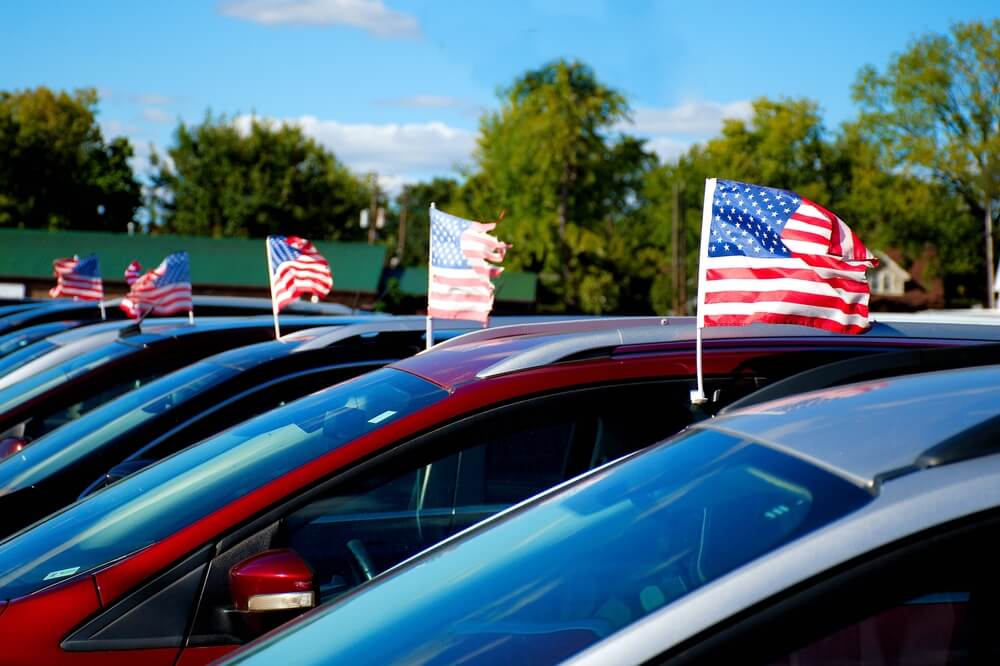
If you are not redirected within 30 seconds, please click here to continue.
Samedi: 10h – 16h HAE

If you are not redirected within 30 seconds, please click here to continue.
If you are not redirected within 30 seconds, please click here to continue.
Should you go to a bank or the dealership for your car loan?

Say you want to buy a car, but you don’t have enough cash saved up to buy it outright. You could decide to lease the car, which would allow you to keep it for a few years. Or you could get a loan – otherwise known as financing the vehicle.
That loan can be obtained either through a bank or through the dealership. However, not all car loans are the same. Learn about the pros and cons of each before reaching your destination.
Financing through a bank: pros and cons
When you finance through a bank, you can trust that your loan is secured and from a legitimate source that you may already have an account with.
Depending on your risk profile, a bank will likely give you a better rate than a dealer and you also have more purchase options: With a loan secured, you should be able to buy new or used from anyone, whether it be a dealer, auction house, used car retailer, or private seller.
Unlike borrowing from the dealership, you may also not need to make a down payment and can typically get a loan with a longer term (often up to eight years) than what a dealer offers.
However, a bank loan is not the right choice for everyone.
One drawback is that going through a bank can make the car buying process even longer. You may be even pre-approved for a loan, but you likely won’t be able to drive off the lot with a car the same day you set your sights on it.
Banks also typically want to see a minimum credit score of 650 to 700 – people with lower credit scores may be offered a higher interest rate, if they’re approved for the loan at all. They’re also more concerned about your income history as well as your debt-to-income ratio. Keep in mind that banks are unlikely to provide you with a loan if you’ve recently filed for bankruptcy.
Financing through a dealership: pros and cons
Dealership financing has some advantages. You may be able to go into the dealership and drive off with a vehicle right away. You will also have the option of getting a loan from the manufacturer, the bank the dealer uses, or an independent loan provider.
Dealers are usually more lenient when it comes to financing than banks, and they’re less likely to scrutinize your credit score or income history. They may even want to sweeten the deal - to get your business, the dealer or manufacturer may offer you rebates or lower-cost financing.
That said, dealer financing typically comes with higher interest rates when compared to a bank. Your loan term (up to a maximum of five or six years) will likely be much lower than a bank, which means higher regular payments. You should expect to make a down payment when taking out a loan from a dealership as well.
Lastly, a dealership loan will limit the places where you can buy your car, as well the cars that are available to you. For instance, you might not be able to get financing for all used vehicles from a dealer, and you will only be able to purchase a vehicle from that dealer’s inventory.
Related: What happens if a dealership employee crashes your car?
Should you get your loan from a bank or a dealership?
Every person’s financial situation is different, and the interest rate is also bound to be unique, whether it be from a bank or a dealer.
Make sure you find out what your financing options and compare interest rates before settling on a car. If you have a good credit score and are looking for a longer term to pay off your loan, consider going with a bank.
If, on the other hand, you plan on paying off your loan as soon as possible, are okay with paying a down payment, and know where your car is coming from, you might opt for dealership financing instead.
And if the above makes you dizzy and anxious, there is a third option.
What is leasing and how does it work?
Leasing is another popular option. When leasing a vehicle, you’re basically renting it for a fixed period. That means that – much like renting a home – you don’t build equity when leasing. At the end of the lease, you have the option to return the vehicle, lease another one, or buy it from the dealer.
The typical lease term ranges from two to five years, and within the agreement is stated the number of kilometres it can be driven. If you go over that number, there will be additional charges when the lease ends.
When negotiating the lease, you and the dealership will consider monthly payment, interest rate, distance the vehicle can be driven, and the value of the vehicle when the lease ends. If you choose the option to drive a larger number of kilometres (30,000 km vs. 20,000 km, for example), the lease will cost more because you’re paying the price of depreciation.
However, there are many reasons why you may want to lease instead of buy.
- The monthly payments on a lease are much lower than financing a new vehicle.
- You get to drive a car with the latest features and technology. You don’t have pay taxes all at once because they’re included in your lease payments. (If you were to purchase a $50,000 vehicle in Ontario, for example, the HST would add another $6,500 to the purchase price.)
- A lease makes more sense if you don’t drive a lot because you’re limited to how far you can drive.
- You’re only responsible for maintenance of the car but typically not the repairs because the car is usually under warranty during the lease period.
- Leasing a car for business purposes can also provide tax benefits that are better than owning a car. You may wish to speak with an accountant to learn more.
On the other hand, depending on your situation, buying may make more sense than leasing.
- You can drive as much as you want – if have a long daily commute, or enjoy taking long road trips, you won’t have to worrying about going over the number of kilometres you’re limited to in a lease.
- You can make modifications to the vehicle. Want to add sport seats or paint the car a different colour? Go right ahead. Whereas, if you have a leased vehicle, any modifications have to be reversed when the term is up.
- You own the car outright once you’ve paid it off in full. It’s yours to enjoy for as long as you want.
Should you buy or lease?
There’s no easy answer. It will depend on your financial situation and personal preferences. Consider what makes sense for you before deciding, and make sure leased auto insurance costs factor into your decision.
The road ahead
When buying a car, you have various options for purchasing one. Figure out what you can afford and calculate the cost of getting a loan from a bank or dealer – or even leasing - before deciding which option is best for you.
Don't waste time calling around for auto insurance
Use Rates.ca to shop around, and compare multiple quotes at the same time.
Get money-saving tips in your inbox.
Stay on top of personal finance tips from our money experts!










